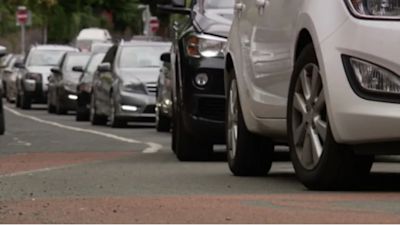Bristol Clean Air Zone: Cars may not be charged due to impact of pandemic

Bristol City Council is looking to find an alternative to its current plans for a diesel ban and clean air zone (CAZ) that would remove the need to impose any charges on households or businesses.
Mayor Marvin Rees announced the news at a press briefing earlier today, Wednesday August 19, explaining that changes in “travel patterns and lifestyles” due to coronavirus had made consideration of non-charging clean air plans possible.
According to the city council, the latest readings of air quality show that despite traffic levels increasing, the city centre’s pollution has remained relatively low.
The local authority says to build on this progress, it is proposing the city could continue accelerating transport improvements, such as improved public transport links, changes to roads, increasing walking and cycling routes and pedestrianising some areas.
Background
The government ordered the council to reduce Bristol’s nitrogen dioxide levels to within legal limits as quickly as possible in 2017.
The council's existing clean air plans would see a ban on privately owned diesel cars in a small part of the city centre and a wider CAZ which would mean older, polluting vehicles would have to pay to enter.
The zone was meant to be in place by next April but the government has concerns about the diesel ban and has ordered the council to consider swapping it for a small zone exactly like the surrounding CAZ but charging private vehicles as well.
Mayor Rees said: "We must be flexible in our approach and work together to get this right as a city. Everyone has a role to play in reducing air pollution and if we all rise to the challenge, we can avoid bringing in costly measures."
“We will continue to do the work needed for the charging options we’ve already been developing."
"It is right that we explore new opportunities in line with the dramatic changes in our lifestyles, travel and income that residents and small businesses experienced following lockdown."
As part of the council’s new ‘test and learn approach’, transport upgrades will be reviewed against evidence based on traffic, travel patterns and air pollution levels.
If the research shows Bristol can sustain improved air quality and traffic levels, it could mean planned charging measures on polluting vehicles are no longer needed.
A public consultation the new proposals for charging zones, to accompany new evidence being collected is being planned for the autumn.
This would mean the city council would submit its proposals to the government next February.
And depending on the outcome of that, a small zone could be created in the spring of 2021 but only if needed, potentially becoming active from October next year.
Read more: